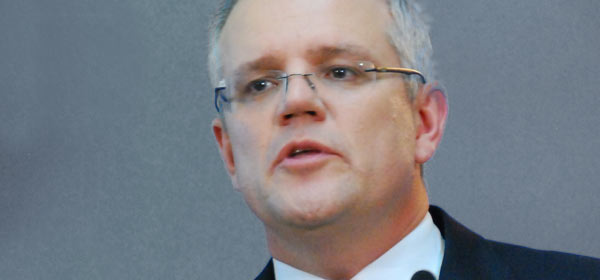Low-value health care procedures such as knee arthroscopies would be defunded, and land taxes and road user tolls would be introduced under a series of controversial proposals suggested by the Productivity Commission on Tuesday.
The Shifting The Dial report, commissioned by Federal Treasurer Scott Morrison, acknowledges that Australia’s health care system is good, but suggests the list of problems with the industry is lengthy.
In reflecting on what works under the current system, the Commission states that Australians are living longer, and with less disability than ever before.
“Australia outranks most other highly developed economies in health outcomes. It has the third greatest life expectancy at birth among OECD countries in 2015 at 82.8 years and a high absolute number of years spent in good health,” the report reads.
The report also reveals that Australians spend more years suffering from ill health than in other developed nations.
The Commission decries the waste that exists in the health care system and the unnecessary procedures that still take place despite evidence that the likely benefit to the patient is nil.
“The evidence that arthroscopy for knee osteoporosis has no or low value in the bulk of instances has been known for more than a decade,” the report claims.
“Arthroscopy for knee degeneration is just one of many costly treatments lacking an evidence base or that do not pass a cost-effectiveness test.
“In Australia, approximately 75 per cent of acute bronchitis is treated with antibiotics, when the evidence suggests that the rate should be near zero.”
Some of the other recommendations for the health care sector are to allow people who are not as qualified as pharmacists to dispense medicines, while allowing trained pharmacists and future pharmacists to do some of the work currently undertaken by general practitioners.
Aside from healthcare the Productivity Commission’s report also recommends the introduction of a land tax to encourage people to move out of large homes on large blocks, allowing the land to be used for more efficient uses, and a user pays road-funding scheme.
Treasurer Scott Morrison welcomed the report on Tuesday.
“The Commission estimates the economic benefits from a health system reboot could be worth up to $200 billion over the next 20 years,” Mr Morrison said.
“This is not about allocating more resources or conversely cutting health budgets.
“It’s about doing more with the investment in health we have already made. Doing things smarter and ensuring our increasing longevity is matched with quality of life.”
Opinion: Health is an investment not a cost
The Productivity Commission’s report makes it clear that spending on health is an investment worth pursuing, pointing to the increased productivity gains that can be made if people are able to work longer.
The Turnbull Government has too often set its narrow focus on trying to cut costs, rather than looking at the bigger picture. This has not been limited to healthcare.
We have seen the Government roll out a flawed National Broadband Network that is manifestly unsuitable for current demand under the auspices of saving a few bucks.
The Government also sees health and education as budget line items that are there to be cut, rather than an investment in the future of our country.
Hopefully, this report will encourage the Government to take up some of the recommendations aimed at increasing spending on preventative health measures, which can save money, but also contribute to better health outcomes.
While some of the healthcare recommendations are welcome, including a push to make the system more patient-focused in the future, there are a number of concerns in other areas.
The most alarming suggestion is a push to recoup money for road funding. The report points out that as more and more people start to shift towards hybrid or electric vehicles, the road funding model, which currently comes from fuel excise, will start to decrease.
It proposes investigating new measures for road funding, and while not making the suggestion explicitly, promotes the idea of tolls on all roads.
This idea would particularly hurt those who are unable to afford new electric cars, most likely those on fixed incomes, such as retirees, while hitting them with a potential double whack under any new road-funding agreement.
What do you think of the ideas in the Productivity Commission report? What would you like to see done to improve healthcare in Australia?
Related articles:
Minister responds to Aveo scandal
Calls for increased palliative care
Housing system broken and unfair

